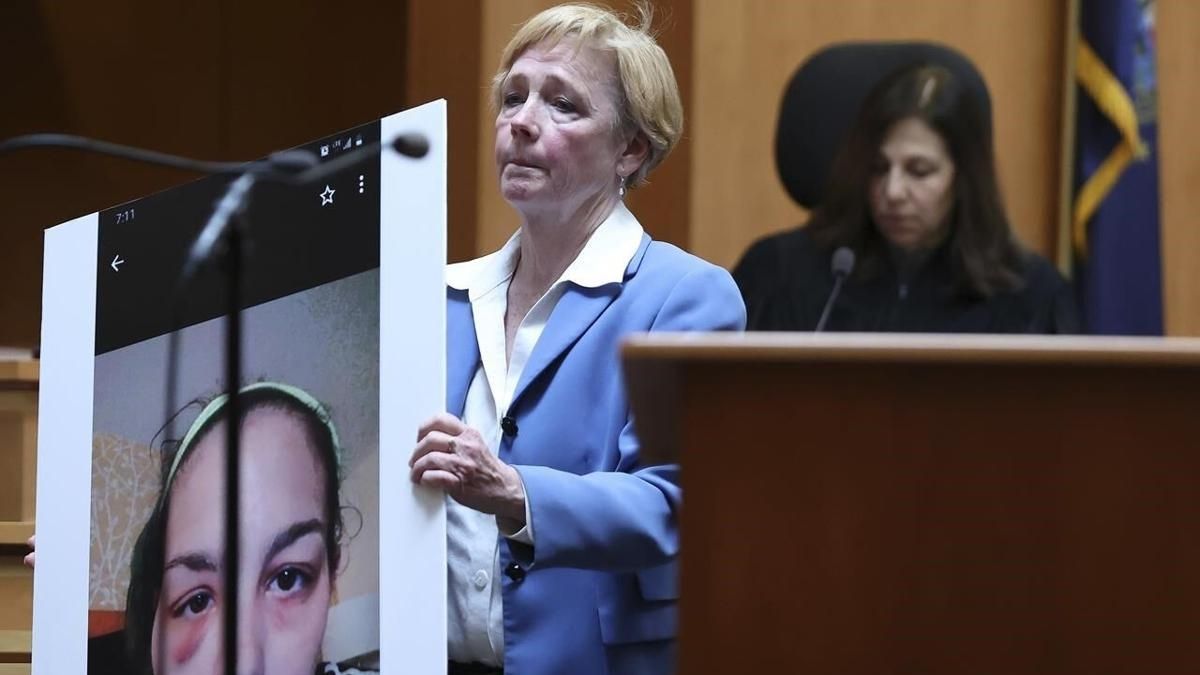


Once upon a time in Oklahoma, former judge Traci Soderstrom resigned after being caught texting and scrolling social media during a murder trial [ca7b8714]. The trial involved Khristian Tyler Martzall, who was accused of killing his girlfriend's 2-year-old son [ca7b8714]. Security footage revealed that Soderstrom had texted more than 500 times with her bailiff during the trial, and the content of the texts included mocking the physical appearance of attorneys, jurors, and witnesses [ca7b8714]. The Oklahoma Supreme Court conducted an investigation and found that Soderstrom displayed bias in favor of the defendant, called witnesses liars, and showed gross partiality against the State [ca7b8714]. Soderstrom acknowledged her inappropriate behavior and resigned before her scheduled trial [ca7b8714]. She denies the characterization of her texts and any bias in the case [ca7b8714]. As part of her resignation agreement, Soderstrom has agreed not to seek any judicial position in the state again [ca7b8714]. The defendant, Khristian Tyler Martzall, was eventually found guilty of second-degree manslaughter and sentenced to time served [ca7b8714].
In a separate incident, Carlos Dorego, a 55-year-old man from New Hampshire, has been charged with a class B felony of improper influence for sending unsolicited text messages to the judge handling his divorce case [98ee31f9]. The charge carries consequences of up to seven years in prison and a $4,000 fine [98ee31f9]. 'Ex parte' communications, or any attempt at discussing a case outside the courtroom without the presence of all parties involved, violate the principles of fairness and impartiality [98ee31f9]. Dorego's actions not only jeopardize his own case but also challenge the integrity of the court's proceedings [98ee31f9]. His arraignment is scheduled for March 27, 2024, in the 1st Circuit Berlin District Division [98ee31f9].
In Denver, Colorado, Alice Ehr, a Denver County Court manager, has resigned amid an internal investigation into the misuse of court money, fraud, and inappropriate workplace behavior [af40eeae]. The investigation found that Ehr spent at least $25,000 of the court's money to hire contractors to do her job, sometimes on days she worked second jobs, conducted personal business, or left work for sexual encounters [af40eeae]. The investigation also found evidence of time and monetary fraud, including the abuse of vacation time and remote work, sending sexually explicit emails from her work account, and leaving the office during the workday to meet someone for sex [af40eeae]. Ehr denies the allegations and claims she had permission from her supervisor to hire the contractors [af40eeae]. The court's investigation ended with Ehr's resignation, and the case was not referred to the police for a criminal investigation [af40eeae]. Employees say the case undermined their confidence in the court's human resources process [af40eeae]. Ehr's alleged misconduct went beyond what was detailed in the disciplinary letter, including discussing her sex life with subordinates and showing them pornographic images [af40eeae]. The interpreters who worked with Ehr did not previously speak up due to fear of retaliation [af40eeae]. The investigation also found evidence that Ehr worked secondary jobs while on the clock, including conducting language proficiency interviews and attending book-related workshops [af40eeae]. Denver County Court did not refer Ehr's alleged misconduct to the police because they did not believe it rose to the level of a crime [af40eeae]. The court's handling of the case has raised concerns among employees about the fairness and reliability of the human resources process [af40eeae].